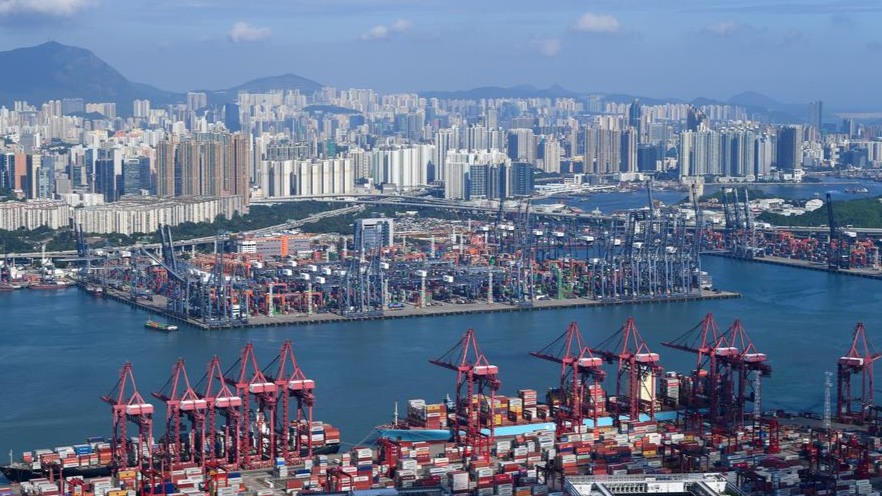
As the latest United States (US) tariff measures raise global trade tensions, experts believe China may need to ramp up economic stimulus to counter mounting uncertainties in the second half of the year, while the Hong Kong Special Administrative Region (HKSAR) could stand out more sharply as a safe haven for global capital.
US President Donald Trump last week announced new tariffs on imports from dozens of countries ahead of an Aug 1 deadline to finalize trade deals. The tariffs, ranging from 10 percent to 41 percent, affect many of the country’s key trading partners, including Canada, Brazil and India.
The levies on Chinese goods remain unchanged as negotiations between Beijing and Washington continue, with the two sides agreeing in May to postpone any trade moves against each other until Aug 12.
READ MORE: US slammed for further imposition of tariffs on HK products
Xu Jianwei, a senior economist for China at Natixis Corporate and Investment Banking, said China’s economic situation is not as bad as people thought it would be at the beginning of the year despite mounting pressure from US policies.
“In the first half of the year, China's exports did very well and this has helped boost growth,” Xu said during a webinar on Tuesday.
Services activity in China has expanded at its fastest rate since May last year, with the S&P Global China General Services Business Activity Index rising to 52.6 in July this year, up from 50.6 in June. Meanwhile, the Composite Output Index stood at 50.8 in July, slightly down from 51.3 in June, indicating a softer pace of growth.
“It was positive to see business sentiment recovering further, with the overall level of confidence highest since March, amid hopes that both global economic and trade conditions will strengthen in the coming months,” said Pan Jingyi, economics associate director at S&P Global Market Intelligence.
However, Xu remains cautious about the economic outlook for the second half, with more headwinds on the horizon. The economist urged more stimulus measures from central government to support the economy.
Regarding the impact on Hong Kong, experts believe geopolitical tensions have brought both “pros and cons” to the city, which serves as a critical gateway for trade and investment between China and the rest of the world.
Gary Ng, senior economist of Asia Pacific thematic research at Natixis CIB, said US tariffs on transshipped goods could negatively impact Hong Kong’s trade sector, as the SAR is a major logistical hub that handles a substantial volume of semiconductor-related products transiting to other Asian countries.
However, in terms of investment activity, the financial center could further sharpen its edge as a safe haven for international capital.
READ MORE: Xia’s remarks reveal the impact of US tariffs on Hong Kong
Ng said some investors might be worried about uncertainties in the US market and could as a result “bring their money to Hong Kong”, citing a robust uptick in the SAR’s initial public offering market performance.
The city’s equity market benchmark, the Hang Seng Index, extended gains to close 0.7 percent higher at 24,902.5 points on a market turnover of HK$229.4 billion ($30 billion) on Tuesday.
The Hang Seng China Enterprises Index -- a barometer of Chinese mainland companies -- edged up 0.65 percent to finish at 8,951.1 points, while the city’s technology stock gauge -- the Hang Seng TECH Index – increased 0.73 percent to close at 5,521.1 points.
Contact the writer at gabylin@chinadailyhk.com


